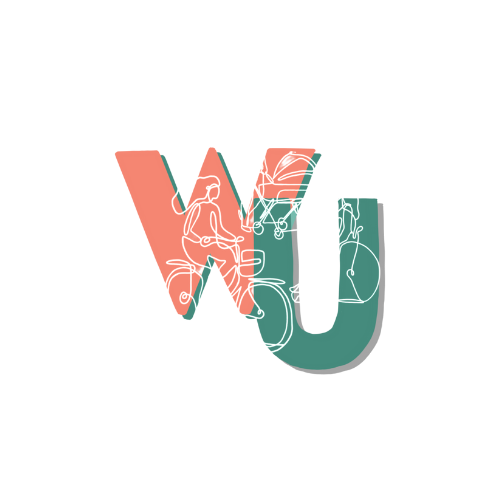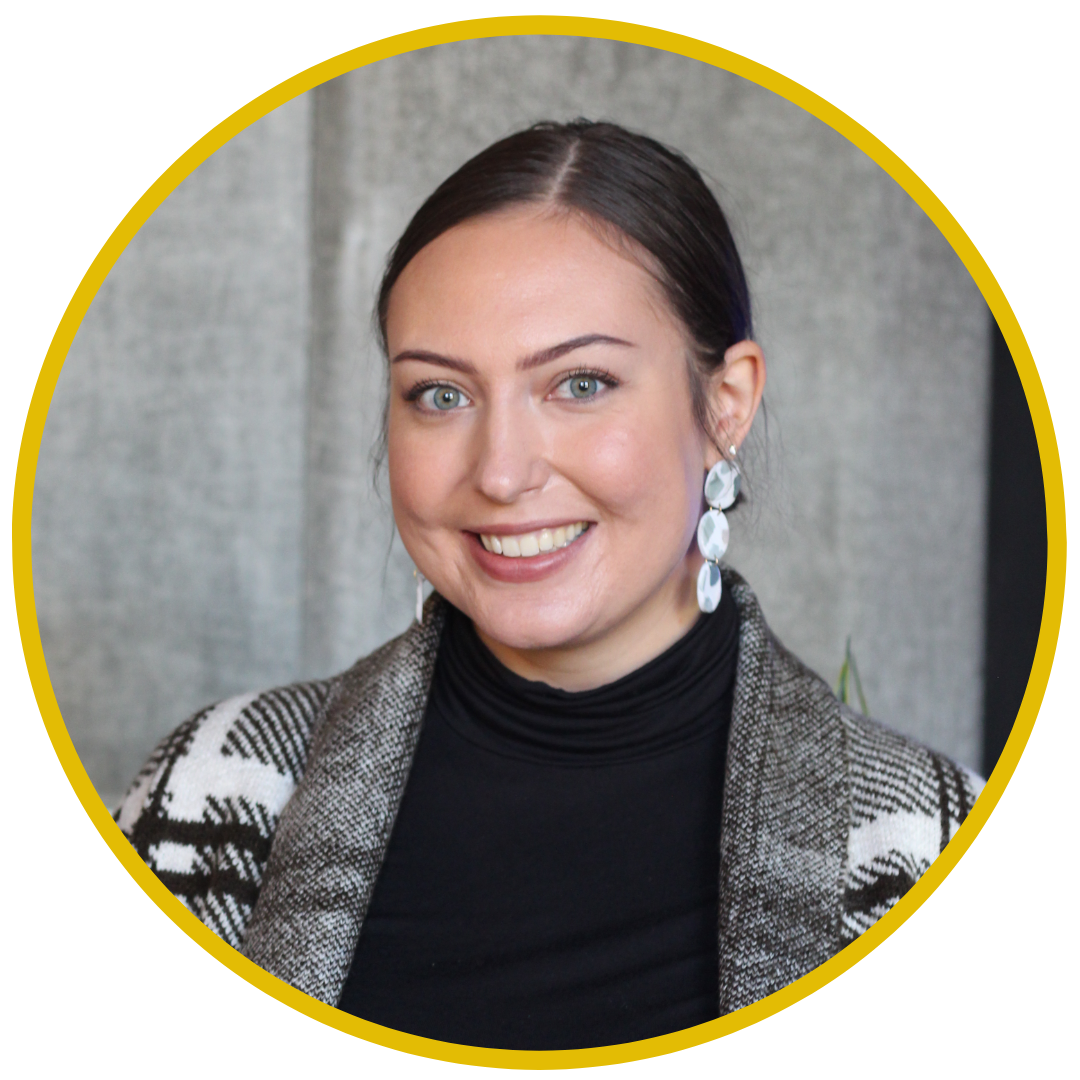Creating Gender-Inclusive Parks in Cities
People lounging and playing in Trinity Bellwoods Park, Toronto, ON (Photo by: Nicole Roach)
Urban parks are incredibly important in providing access to nature, free public spaces, room for physical activity, climate mitigation and adaptation benefits, biodiversity, community-building, and socialization. There are many benefits resulting from quality urban parks, however, access to parks and their benefits are not always equal. Women, who are more likely to experience poverty, may have less access to parks nearby and/or lack transportation options to travel to parks further away. Even when women can access parks, they may not be able to enjoy them due to gender-based harassment, violence and other potential threats. Based on research by the University of Leeds, women are three times more likely than men to feel unsafe in parks during the day, with this perception of risk increasing significantly at night. Fortunately, there are many things that can be done in urban parks to make them more gender-inclusive. Our team at Women in Urbanism Canada has some ideas, but we have an exciting opportunity to connect with and hear from a larger community on how to make public parks better for themselves and their communities. Workshop Series
We are very excited to announce our virtual workshop series: Creating Gender Inclusive Public Parks. With funding from Park People and TD Bank, we are hosting a three-part workshop series based around themes of sustainability, inclusivity, and placemaking in public parks located in Halifax, Winnipeg, and Calgary. The objective is to raise awareness of gender inequities in public parks and engage communities in creating solutions to fit their local context.All sessions include presentations from local experts, a Q & A, and two workshop activities focused on themes of drawing connections and developing solutions. The activities include facilitated breakout sessions with discussion on: Identifying gender-based impacts on women’s ability to access and enjoy public parks; andBrainstorming which gender-based interventions can improve public parks for women and other equity-deserving genders.
Each session is free, virtually hosted via Zoom, and is 1.5 hrs long (with an additional 15 minute open Zoom room for those who would like to continue the discussion). The workshops focus on specific communities, but they are open to anyone across Canada who is interested in gender-inclusive public spaces and sustainable communities. Workshop #1: Gender-Based Climate Adaptation at Point Pleasant Park, Halifax, NS
The first workshop of Women in Urbanism Canada’s ‘Creating Gender Inclusive Public Parks’ three-part series is focused on ‘Gender-Based Climate Adaptation at Point Pleasant Park’. This workshop is moderated by Women in Urbanism Canada’s Board Member, Ally Lord, and features presentations and Q&A with expert Halifax-based speakers:Delvina Bernard (she/her), BCom, MEd, PhD Candidate - Equity Diversity Inclusion Accessibility Advisor at Mount Saint Vincent University.
Whatever it is, the way you tell your story online can make all the difference.
For more than 30 years, Delvina Bernard has dedicated her professional and personal life, as an educator and musician, to developing strategic initiatives aimed at dismantling all forms of systemic discrimination. As an institutional change strategist and social justice advocate, she has led the design and implementation of numerous educational, cultural, and economic development programs. Delvina has traveled globally as an ambassador for anti-racism, anti-poverty, and gender justice causes and has received regional and national awards for her leadership in the arts, education, and social development. Delvina is employed as the Equity, Diversity, Inclusion, and Accessibility Advisor at Mount Saint Vincent University. She holds degrees in Business, Adult Education, and Lifelong Learning. She is currently a part-time PhD student at Saint Mary’s University conducting qualitative research on economic models for Reparatory Justice.Zamani Folade (she/her), BCD, M.Arch Candidate - Singer, Songwriter, Producer, and Visual Artist.
Whatever it is, the way you tell your story online can make all the difference.
Zamani is a multi-awarded singer, songwriter, music producer, visual artist, and rising creative industries professional. As a 9th generation African Nova Scotian, her work features themes of identity, optimism, self-love, and Black girl magic. Currently a full-time student, Zamani brings this unique cultural lens to her current studies in community-centered design and architecture. Zamani is a youth representative on the Akoma Property Committee and was selected to participate in the One North End Architectural Mentorship Program with Habit Architects Studio. Zamani is a graduate of Dalhousie University with a Bachelor of Community Design & Planning (2022). She is currently pursuing a degree in architecture at Dalhousie.Visit Zamani’s website and follow her on Instagram and Twitter.The session focuses on Point Pleasant Park, a 75-hectare wooded park situated in the south end of the Halifax Peninsula. It includes 39 km of winding trails and wide walking paths, along with a beach, the ruins of several forts, cycling trails, off-leash dog walking areas, and washroom facilities. Workshop #2: Gender-Based Inclusion at St. John’s Park, Winnipeg, MB
The second workshop of Women in Urbanism Canada’s ‘Creating Gender Inclusive Public Parks’ three-part series is focused on ‘Gender-Based Inclusion at St. John’s Park’. This workshop is moderated by Women in Urbanism Canada’s Co-Founder and Vice-Chair, Sharee Hochman, with Desiree Theriault as the guest speaker. The session focuses on St. John’s Park, a 6.8 hectare park that straddles the borders of North Point Douglas and Winnipeg’s North End, with views of both the Red River and Main Street. It includes a play structure, bowling greens, floral gardens, picnic tables, picnic shelter, a wading pool, space for bouncy toys or tents, and seasonal washroom facilities. Desiree Theriault (she/her), BED, MLA - Partner & Senior Landscape Designer
at
Narratives Inc.
Whatever it is, the way you tell your story online can make all the difference.
Desiree Theriault is an award-winning Red River Métis designer and planner from Treaty #1 Territory. She has a background in landscape architecture and memorialization where she found her passion in uncovering the stories of the land and the power of landscape to amplify under-represented voices. Desiree's dedication to reconciliation through the landscape is exemplified by her thesis work, which involved collaborating with families of Missing and Murdered Indigenous Women, Girls and 2S folk (MMIWG2S) to develop a memorial park at the Alexander Docks alongside the Red River. The goal of the project was to raise awareness and provide dignity to MMIWG2S by creating a space for remembrance, reflection, and community. Desiree's commitment to this project continues, as she works to bring it into reality. She recognizes the importance of spatial justice for MMIWG2S and believes that memorialization and representation is a crucial step in honouring and remembering the lives of those who have been lost.Desiree's vision is to inspire the next generation of Indigenous youth and designers to find their voice and uncover the stories of the land to bring representation and inclusion to the places we live in. Her hope is to create a better world for future generations by embracing inclusive, restorative, and regenerative spaces. Through her work, Desiree seeks to honour the land, its people, and its stories, and to create meaningful and enduring connections between them.Follow Desiree on Instagram and LinkedIn.Planned date: Tuesday, September 19th, 2023 at 7:00 pm CT (8:00 pm ET)Workshop #3: Gender-Based Placemaking at Edworthy Park, Calgary, AB
The final workshop of Women in Urbanism Canada’s ‘Creating Gender Inclusive Public Parks’ three-part series is focused on ‘Gender-Based Placemaking at Edworthy Park’.This workshop is hosted by Women in Urbanism Canada’s Board Member, Varvara Belenko, and features presentations and Q&A with expert Calgary-based speakers:Michelle James (she/her), MPH - Public Policy Specialist at the Women’s Centre of Calgary
Whatever it is, the way you tell your story online can make all the difference.
Michelle is a settler living, working, learning and playing in Calgary (Moh’kinsstis) within Treaty 7 territory and the traditional lands of the Blackfoot Confederacy (Siksika, Piikani and Kainai), TsuuT’ina and Îyârhe Nakoda (Goodstoney, Bearspaw and Chiniki) First Nations, as well as the Métis Nation of Alberta Region III. Michelle is a passionate public health professional and has over 10 years of experience working with equity analysis and decolonized public policy, social services, and evaluation methodologies in diverse settings, including the District of Squamish, Miskanawah Community Services Association, the World Health Organization, and presently the Women’s Centre of Calgary. In her current role, Michelle develops and analyzes social policy solutions through community-driven GBA+ and equity lenses by engaging with the diverse community of women served through the Women’s Centre every day. Michelle holds a Master of Public Health from the University of Victoria, where she specialized in Social Policy. When not at work, Michelle can usually be found enjoying the outdoors with her two young children and is a volunteer member of the City of Calgary’s Gender Equity, Diversity and Inclusion Subcommittee.Follow Michelle on LinkedIn. Afrin Islam (she/her), B.Arch, MLA Candidate - CSLA-AALA Student Member at the University of Calgary
Whatever it is, the way you tell your story online can make all the difference.
Afrin, a native of Bangladesh, is pursuing a master's degree in landscape architecture at the University of Calgary. She completed her bachelor’s in architecture and volunteered in different humanitarian work in her country. Her passion for architecture, landscape, environment, and public realm design has consistently provided her with opportunities to engage in diverse research projects both at home and abroad. Inspired by her father's role as a freedom fighter, she aims to serve others and design inclusive spaces that enhance the emotional connection between people and their surroundings and bring positive changes in the urban environment. Afrin actively volunteers for the design and research of pollinator-friendly planters on campus as part of the UofC Avant Garden team. She gained hands-on experience working on a project for child-friendly streetscapes in Calgary's urban context as an intern with Sustainable Calgary. Afrin also fosters a sense of community among students through collaboration with the SAPL Student Association, while also enjoying her cultural celebrations, eco-friendly crafting, and spending time with family and plants.Follow Afrin on Facebook, Instagram, and LinkedIn. The session focuses on Edworthy Park, a 169 hectare park located in southwest Calgary, bordered by the Bow River and the community of Wildwood. The park includes the Douglas Fir Trail and Lawrey Gardens, with amenities such as an off-leash dog park, native grasslands, paved pathways, picnic sites and shelters, and accessible playgrounds. Planned date: Thursday, October 19th, 2023 at 6:00 pm MST (8:00 pm ET)This workshop series is made possible with the generous support of the TD Park People Grant.











